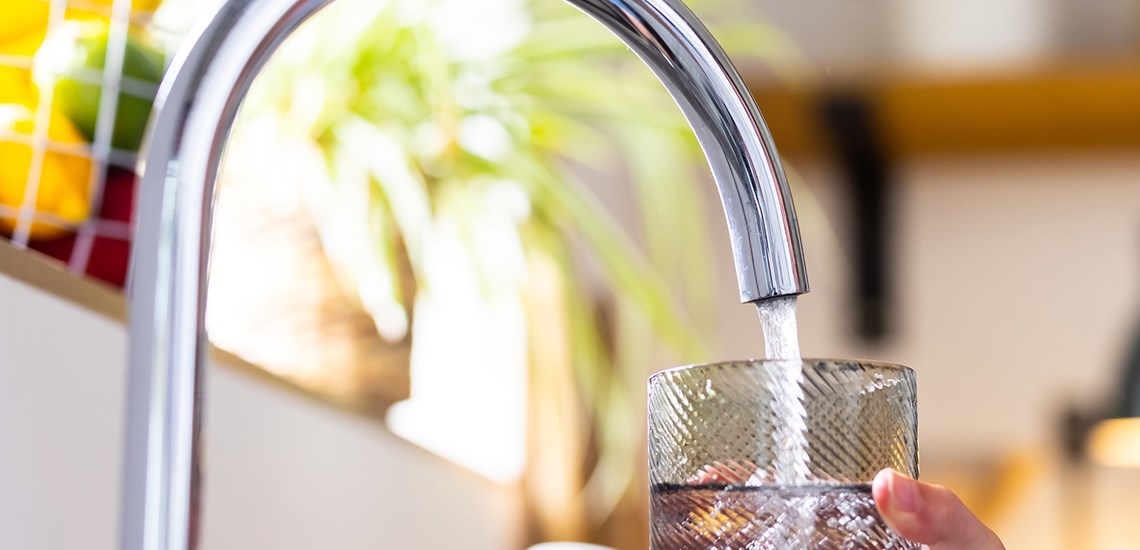By 2040, it’s predicted that 12 out of 17 regions in the UK will be seriously water-stressed.
As we celebrate World Water Day, we’re focusing on this year’s theme: ‘Leveraging Water for Peace’, which is all about protecting and conserving our most precious natural resource.
There's a limited amount of water available to us on the planet, and that’s all there is. We can’t make more of it, but we can use it more wisely. Yes, we’re drinking the same water that the dinosaurs were drinking millions of years ago. But there’s more of us than there were of them, and as populations continue to increase so does demand for that same amount of water.
So, what are we doing to tackle the challenge of water scarcity? And how can you help?
What is water scarcity?
Water scarcity is when the demand for water exceeds the amount available. In 2021, it was reported that the UK population has grown by four million since 2001. This is only set to increase, which is why so many regions in England are at risk of becoming water-stressed over the next 15 years.
But it rains all the time in the UK?
Yes, this winter has been one of the wettest on record in parts of our region, and we’ve seen a lot of groundwater flooding. You’d think that this means that we now have loads of water stored for a long, hot summer, but it’s not that simple.
Most of our supply in the South East comes from natural underground stores of water known as aquifers, which take a long time to fill up. When it rains really heavily, the ground just can’t soak up all the water fast enough so a lot of it just runs away or causes flooding, potentially contaminating other raw water sources.
These more extreme storms due to climate change, and hotter summers, coupled with a rising population and a reduction in the amount of water we can take from the environment are the main causes of water scarcity. That’s why we’re investing in new, innovative ways to tackle it.
What are we doing about it?
Fixing leaks
In a typical week, our leakage team finds and fixes around 500 leaks. By 2050, we’re aiming to reduce the amount of water lost from our network through leaks by half. To do this we’re increasing the size of our leakage team, who work 24/7, and investing in innovative technology like AI, LeakBots and satellites to find and fix leaks more efficiently.
Building a new reservoir
We’re working in partnership with Portsmouth Water to build the first new reservoir in the South East in over 50 years. The reservoir, which is being funded by Southern Water and built by Portsmouth Water will provide a reliable water supply for the water-stressed South East and will allow us to conserve more water after prolonged periods of rainfall.
Recycling water
We’re planning to build a Water Recycling Plant in Havant, Hampshire, and a water transfer pipeline to speed up the natural water cycle, reducing the amount taken from the environment.
What can customers do to reduce the impact?
When it comes to making sure we have enough water for years to come, we all have a part to play. With the average UK person, using 142 litres of water per day, we want to help our customers reduce their use to 100 litres by 2040. Here are a few simple ways to save a little water that will make a lot of difference…
Water calculator
Knowing how much water you use can help to save you energy and money too. Our water calculator is a handy online tool that will calculate your usage, before providing a tailored water report along with advice on changes you can make to save on your bills.
Shorter showers
On average people shower for eight minutes a day, four minutes longer than recommended. Showering for just one minute less can save around 15 litres of water each time and up to £75 a year off your water bill.
Leaky loos
A leaky loo can waste up to 400 litres a day! To find out if you’re flushing away valuable water with each toilet trip, click here.
If we all work together, we can help ensure we all have Water for Life.
